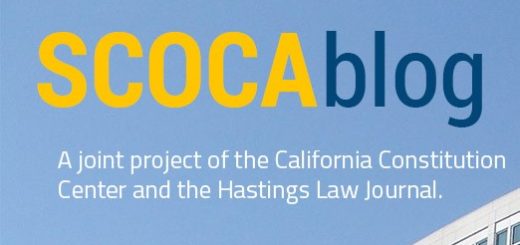Event announcement: a recall debate
The Bar Association of San Francisco presents: Recall Elections in California Date Thursday, November 3, 2022 MCLE Registration 3:30 – 4:00 p.m. Virtual Program 4:00 – 5:30 p.m. MCLE 1 Hour in Legal Ethics Speakers Senator Joshua Newman, California Senate District 29 David A. Carrillo, Lecturer in Residence, UC Berkeley Law and Executive Director, California Constitution Center Larry Gerston, Professor, Public policy, Civic Engagement and State and U.S. Politics Jamarah Hayner, President, JKH Consulting Joshua Spivak, Senior Fellow at Hugh L. Carey Institute for Government Reform Moderator: Yolanda Jackson, Executive Director and General Counsel, The Bar Association of San Francisco and...




